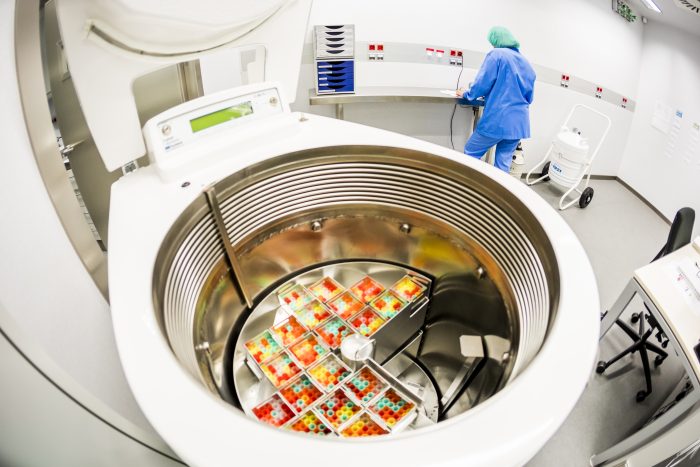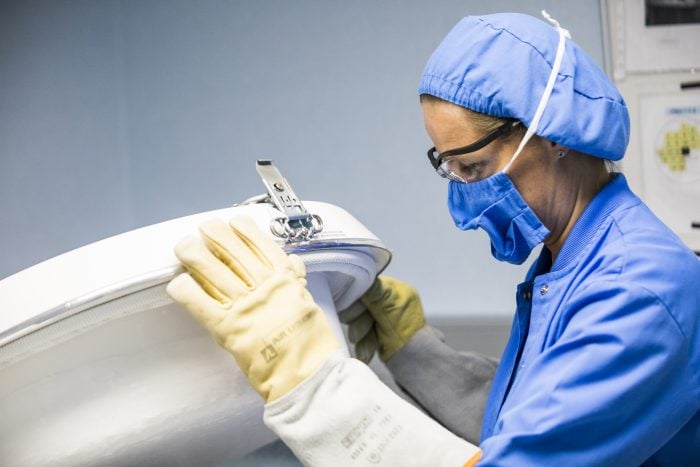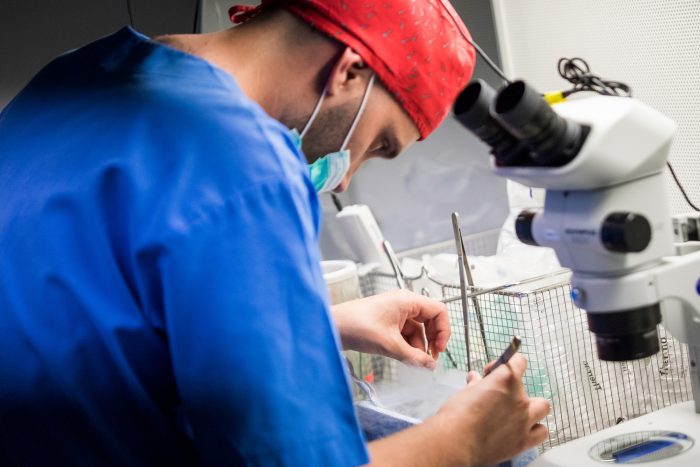

The treatment to preserve fertility consists of freezing eggs at -196º to ensure they remain young and in the best conditions, to enable women to decide when the best time to get pregnant is.


Techniques for preserving fertility offer women the possibility of postponing motherhood if they wish to do so or who have cancer.
RESULTS
90% of patients who undergo an assisted reproduction treatment at IVI become pregnant.
CARE
97% of our patients recommend IVI.
IVI provides personalised care and support during all stages of treatment.
TECHNOLOGY
IVI is a pioneer in the latest assisted reproduction technology in order to present the best results.
PRICE-QUALITY
We are not the most expensive choice. We offer the most treatment options in order to achieve the best results.
The following techniques are offered by IVI for the purpose of preserving fertility


The vitrification of oocytes allows the mature eggs obtained following ovarian stimulation to be cryopreserved so that they can be used at a later date, when the patient decides she is ready, with the same prognosis as at the point when they were vitrified. Due to the fact that ice crystals do not form, oocyte survival rates are high, allowing motherhood to be postponed with reasonable guarantees of success.

Cryopreservation of the ovarian cortex is another technique used in the preservation of fertility through which various births have already been achieved around the world. This technique would enable ovarian function to be restored, meaning that spontaneous pregnancies could even be achieved, and in addition, due to having normal levels of hormones, the secondary effects of an early menopause (osteoporosis, hot flushes, and cardiovascular problems) would be avoided.

This could be used with:
At IVI we contribute to improving the self-esteem of patients suffering from cancer through the possibilities that the various assisted reproduction techniques can offer them. The improvements to oncology treatments and the efficiency of early screening programmes have led to the recovery and survival rates for some tumours increasing significantly. This increased life expectancy has caused us to turn our attention to the secondary effects of treatments using chemotherapy and radiotherapy, and in this respect, ovarian function and preserving fertility are two of the aspects which concern female cancer patients the most. For this reason, our professionals work hard to offer these patients possibilities in terms of reproduction.
The effects of cancer on fertility:
There are currently several different options and treatments available to cancer patients for maintaining their fertility:
Nowadays, IVM should be considered as a complementary technique to ovarian stimulation, useful in cases where there is no time to carry out ovarian stimulation, or when immature oocytes are obtained following stimulation, and as a complement to obtaining ovarian tissue.
These treatments targeting the preservation of fertility for cancer patients cannot guarantee that pregnancy will be achieved in the future, but they do mean that it will at least be possibly to try.